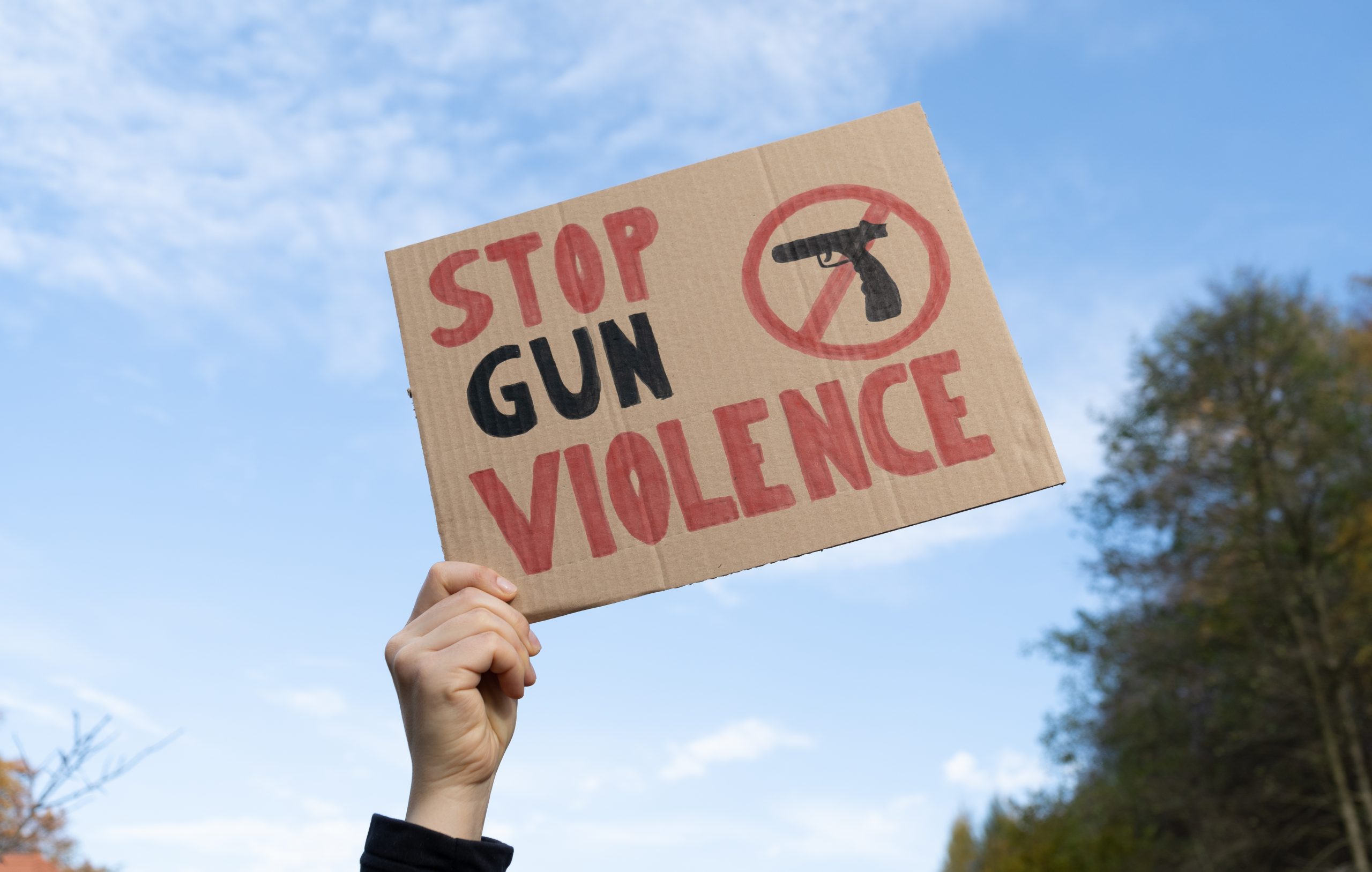By Mel Wilson, MBA, LCSW – NASW Senior Policy Adviser
Lewiston, Maine has become the latest city to capture the nation’s attention when 18 people were killed and more than a dozen injured in shootings at multiple locations in this town of less than 40,000 people.
This tragedy followed a depressingly familiar pattern. The perpetrator used an assault weapon with a high-capacity magazine to commit the crime, reportedly suffered from a serious mental illness, was able to purchase the weapon legally, and took his own life within hours of the massacre.
The weapon he used was familiar. Assault weapons are often used in mass shootings. They are designed for combat with the singular purpose of killing a large number of people quickly. It goes without saying that these weapons should be banned.
The nation was again appalled by the carnage and offered support to the families and friends of the victims and the Lewiston community. However, our nation is no longer surprised that such events keep happening.
The Lewiston mass shooting was just one of at least 581 mass shootings where at least four people have been shot that have occurred in the United States this year, according to the Gun Violence Archive. Twelve of those shootings occurred over the same weekend as the Lewiston murders.
When gun violence happens so frequently many of us are beyond being shocked. When we add gun violence that is not defined as a mass shooting – such as daily urban shootings – the presence of seemingly unending bloodshed becomes overwhelming.
Nearly one in five adults in the United States has reported having a family member killed by a gun, including by homicide and suicide, according to a survey published in April by the Kaiser Family Foundation. About as many adults have been personally threatened with a gun, and about one in six adults has witnessed an injury from a shooting, the survey says.
We are again trapped in a “Groundhog Day” reality where pro-gun government officials make the exact, same empty statement each time a mass shooting happens ― knowing full well they have no intention of supporting any form of gun violence prevention legislation or regulations.
A recent example of this type of obfuscation is when the newly elected Speaker of the House Mike Johnson (R-LA), when asked if gun violence prevention legislation would be a priority in the wake of the Lewiston shootings, said: “This is a dark time in America. We have a lot of problems, and we are hopeful and prayerful. Prayer is appropriate at a time like this, that this senseless violence can stop.”
He went on to say that now is not the time for any new gun violence prevention legislation. We have heard those identical words over and over from those opposed to gun violence prevention legislation.
It is not too much to insist our political leaders at least enact commonsense gun laws aimed at reducing gun violence. It is difficult to understand how the opposition to such legislation can ignore the public health urgency that gun violence represents – including the fact that the leading cause of death of children are guns. But they do ignore those realities while at the same time telling us that prayers are the best remedy for this public health crisis.
“Instead of facing this issue head-on, our elected officials are going in the wrong direction at the time Americans need them most. Relying on weak gun industry-written ‘yellow-flag’ laws will allow tragedies to continue to plague every community in our country.” ― Kris Brown, President of the Brady Campaign
To the White House’s credit, President Biden did call on Congress to work with him on gun violence legislation. In particular, he proposed passing a bill banning assault weapons and high-capacity magazines, to enact universal background checks, to require safe storage of guns, and end immunity from liability for gun manufacturers.
While Biden’s proposals are not new gun violence prevention legislative, it is important that the President has made a high-profile plea for action from Congress. Many observers say it will be very difficult to get bipartisan support for such legislation, but many of us will support him for trying.
Here are community resources for people in Lewiston affected by the tragedy. Social workers who want to help can also contact NASW Maine Chapter Executive Director Chris McLaughlin at cmclaughlin.naswme@socialworkers.org for more information.




